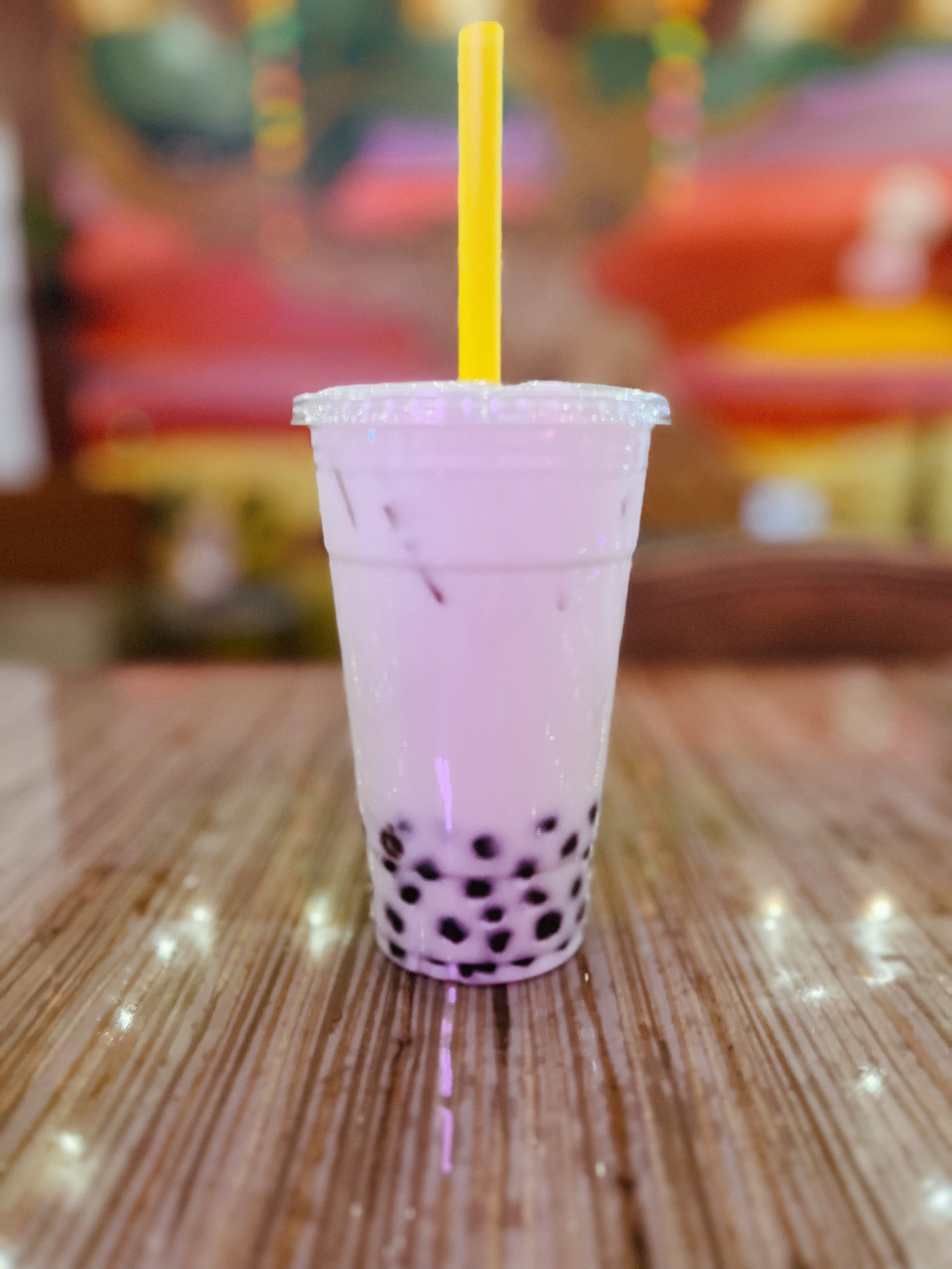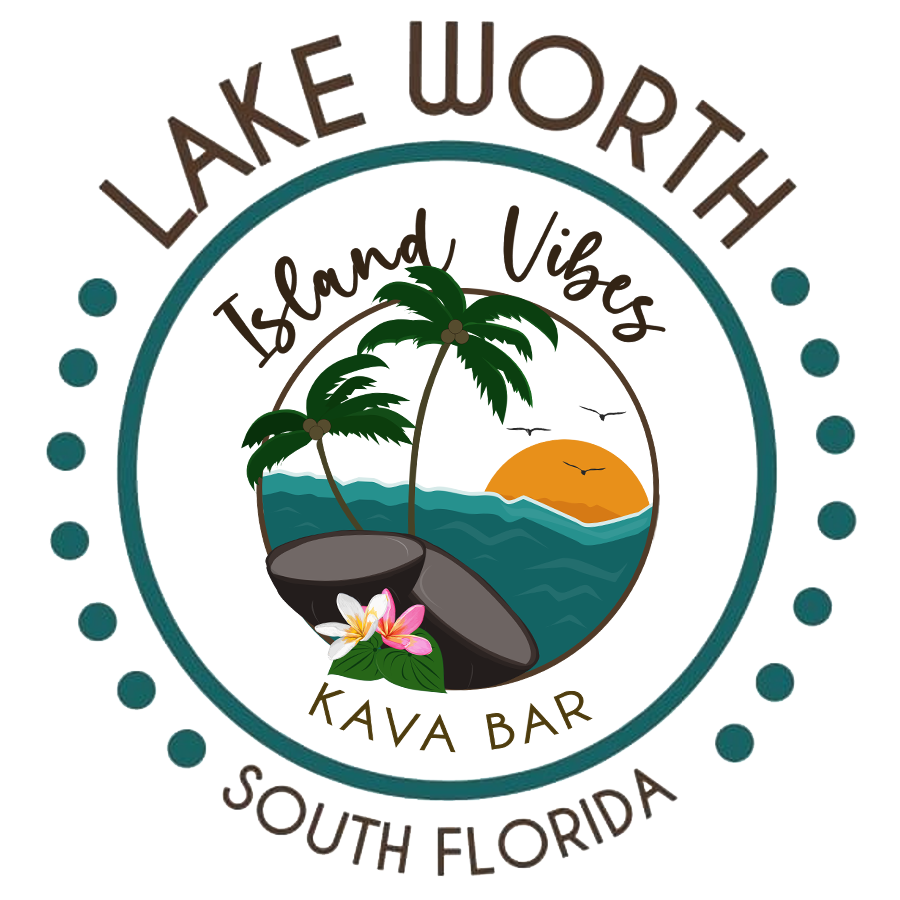
Boba Tea
Indulge in our delightful Boba Tea, crafted fresh by our talented bartenders at Island Vibes Kava Bar. Each cup is a celebration of flavor, featuring chewy tapioca pearls that burst with texture and sweetness. Choose from a variety of flavors—whether you crave classic milk tea, refreshing fruit blends, or exotic specialty options, we’ve got something to satisfy every palate.
Made with high-quality ingredients, our Boba Tea is not just a drink; it's an experience. Perfectly brewed and expertly mixed, each sip transports you to a tropical paradise, ideal for sipping while you unwind in our friendly atmosphere. Come by and treat yourself to a refreshing escape with the best Boba Tea in Lake Worth!
Boba Tea
Indulge in our delightful Boba Tea, crafted fresh by our talented bartenders at Island Vibes Kava Bar. Each cup is a celebration of flavor, featuring chewy tapioca pearls that burst with texture and sweetness. Choose from a variety of flavors—whether you crave classic milk tea, refreshing fruit blends, or exotic specialty options, we’ve got something to satisfy every palate.
Made with high-quality ingredients, our Boba Tea is not just a drink; it's an experience. Perfectly brewed and expertly mixed, each sip transports you to a tropical paradise, ideal for sipping while you unwind in our friendly atmosphere. Come by and treat yourself to a refreshing escape with the best Boba Tea in Lake Worth!
What is boba?

Boba, also known as bubble tea, is a delightful Taiwanese drink that combines sweet milk tea with chewy tapioca pearls. Sipped through a wide straw to enjoy both the creamy tea and the satisfying texture of the pearls, boba has become an international sensation, offering a fun and flavorful experience that keeps fans coming back for more.
The history odf boba tea
Boba culture started in the late '80s, and its origins are debated. Milk tea was already well-known in Taiwan, as tea drinking was a robust practice in East Asia. Both shaved ice and tapioca balls were considered common desserts at the time. At some point, someone thought to combine three popular elements into one beverage — tapioca balls on the bottom, followed by a layer of shaved ice, and milk tea to fill out the rest of the drink.
The tea became known as "boba" because the term is Taiwanese slang for breasts (a reference to the spherical shape of the tapioca balls), and is believed to have originated from Chinese characters. Boba evolved over time as it grew more widespread throughout Taiwan: Stall owners started introducing fruit boba, using fruit powders and syrups in lieu of actual fruit (which was too expensive and went bad quickly). The topping choices expanded beyond tapioca balls to include elements like grass jelly, almond jelly, egg pudding, and red beans. Even in classic boba, the milk in the milk tea was swapped out for non-dairy creamer, and as a result, the drink became known for its incredibly sweet, creamy taste.
Boba's role in Taiwanese and American culture
In Taiwan, boba is a staple of the night markets, which encompass hundreds of food stalls where everyone congregates after work for groceries and snacks. Food trends come and go in these stalls, but according to Chen, boba has become a mainstay. "When you are walking from stall to stall, if you look around, everyone is carrying some variation of boba, whether that's a fruit drink or a milk tea," he says.
Starting in the '90s boba also became a huge craze in the U.S., following the widespread immigration of Taiwanese people and the growing popularity of café culture due to places like Starbucks. "[Starbucks] opened the doors for the midday pick-me-up," Chen says. "When they started offering things like frappuccinos in addition to coffee, it really made a way for all different types of drinks."
The popularity of boba tea grew even more when places like Boba Guys opened up, offering high-quality teas, real milk, and a comfortable, casual atmosphere. Chen also theorizes that as drinks like aloe juice and coconut water, both of which can have jellied remnants in them, have risen to prominence, "people are becoming more used to having chewy bits in their drinks."

Still, he's surprised that bubble tea has managed to capture the imaginations of so many American consumers in such a relatively short period of time. He compares it to sushi, starting as a foreign tradition but eventually being absorbed fully into American food culture. "If I told people twenty years ago that one of the most popular beverages would be a tea they could chew, they'd be very skeptical," he says. Fortunately, Chen's bet on tapioca balls paid off, and given the last decade, it's likely that the trend will only continue to spread across the globe. "Boba bridges cultures," he tells me.
Correction: This story was updated on April 28, 2021. Boba tea did not most likely originate in Taipei; it was not for certain created by a food stall owner during the summer; non-dairy creamer was not necessarily used because it is shelf-stable; Chinese teas in general do not have a tendency to lean bitter; and the boba trend did not necessarily cool down in the early 2000s.

